Observation: Balcony deliveries / Havana
Pie in the sky
Some things are looking up in Havana, where a centuries-old, street-to-balcony trading tradition has been enhanced by delivery apps. It’s easy to get the hang of – and everyone is pulling in the same direction.
By mid-morning in Havana’s leafy Vedado neighbourhood, the jostling melodies of the city’s dawn chorus are joined by another group of urban choristers: the voices of the pregoneros. These familiar calls, emanating from Havana’s roaming mobile retailers, are as old as the city itself. Their patter advertises the sale of everything from brushes, buckets and brooms to tamales, television antennae and everything else in between.
And, like actors who have perfected delivering their lines to the farthest reaches of an auditorium, they know that, in a city of balconies, there are potential customers up in the gods.
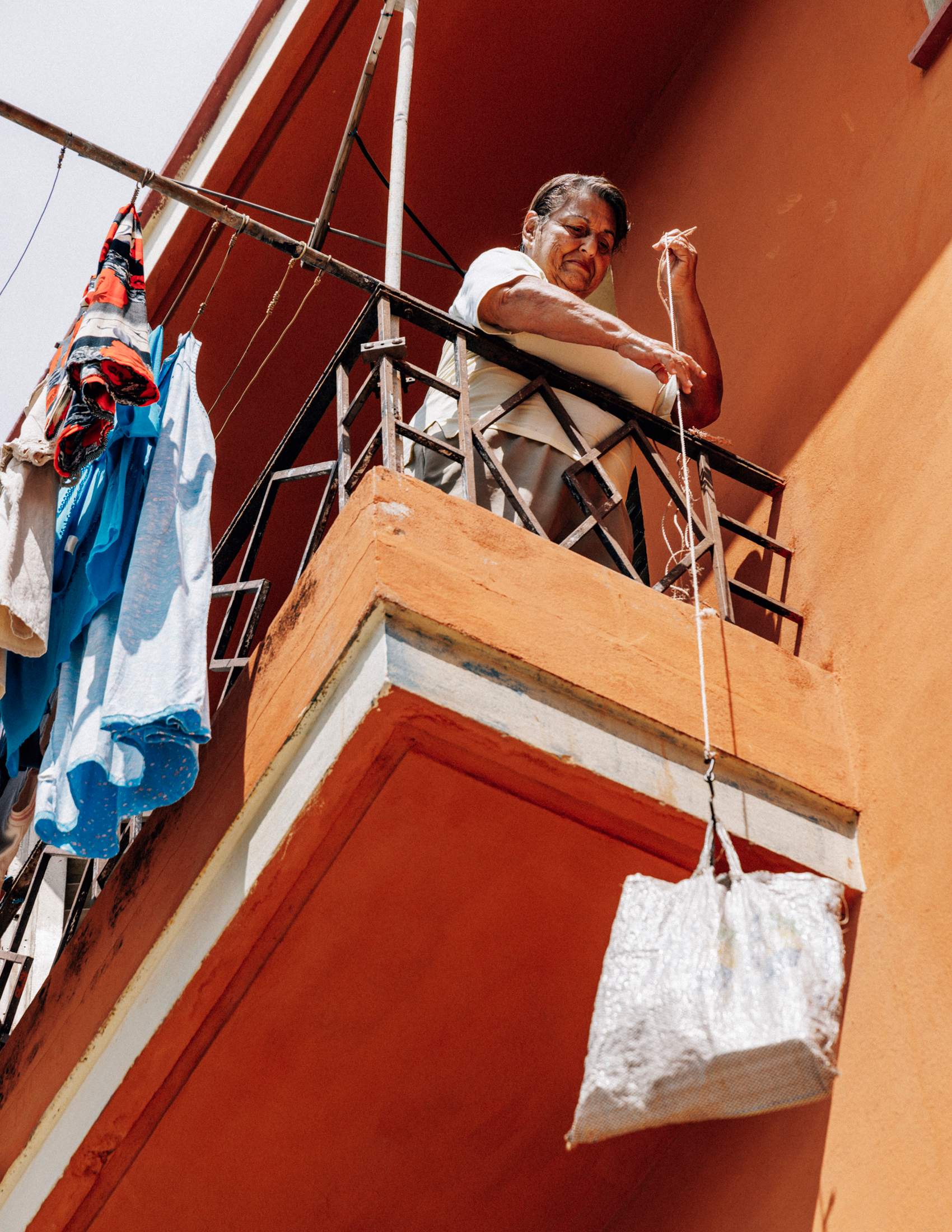
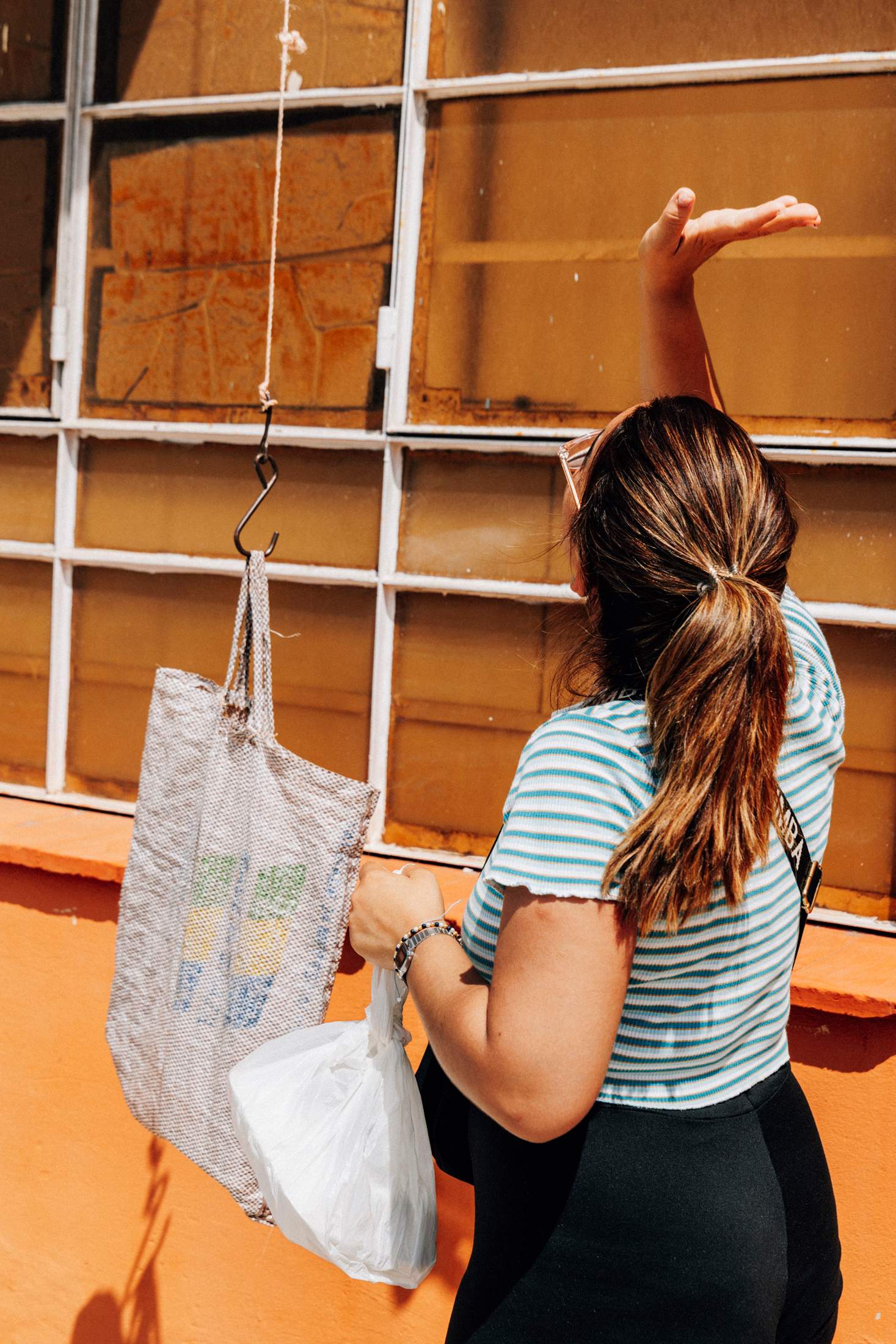
My ears prick up late one morning when a call that I’ve been waiting for soars up to my fourth-floor apartment. It’s advertising fresh-fruit and coconut pies; a local pre-lunch treat. Quickly, I grab a Havana-household essential, a basket tied to a sturdy, plaited string, and try to catch the pie-seller’s attention from my balcony. He scans the sky, sees me and repositions his mobile shop, which has the words “Your Favourite Pie” emblazoned in Spanish on its roof.
With money in the basket, I lower it down to street level. “How many pies would you like?” the pie-seller says, as the basket descends. “One, thank you; coconut, please.” I tell him. “Only one?” he says, ever the salesman, adding that sometimes he polishes off three family-sized pies in one sitting. I resist and he removes the cash from the basket, sliding a golden, pastry-topped coconut pie into a bag and attaching it to the basket. One pie, it turns out, was not enough.
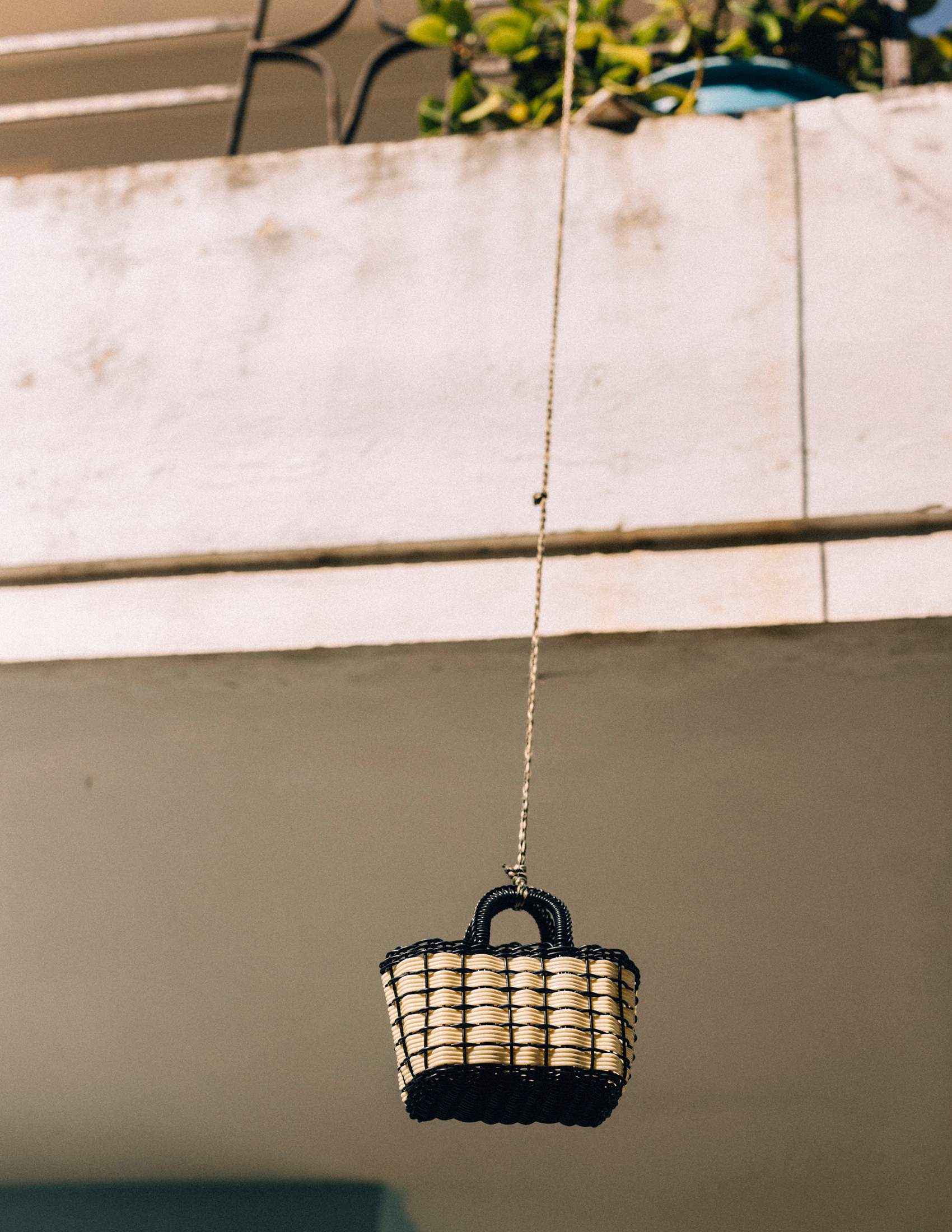
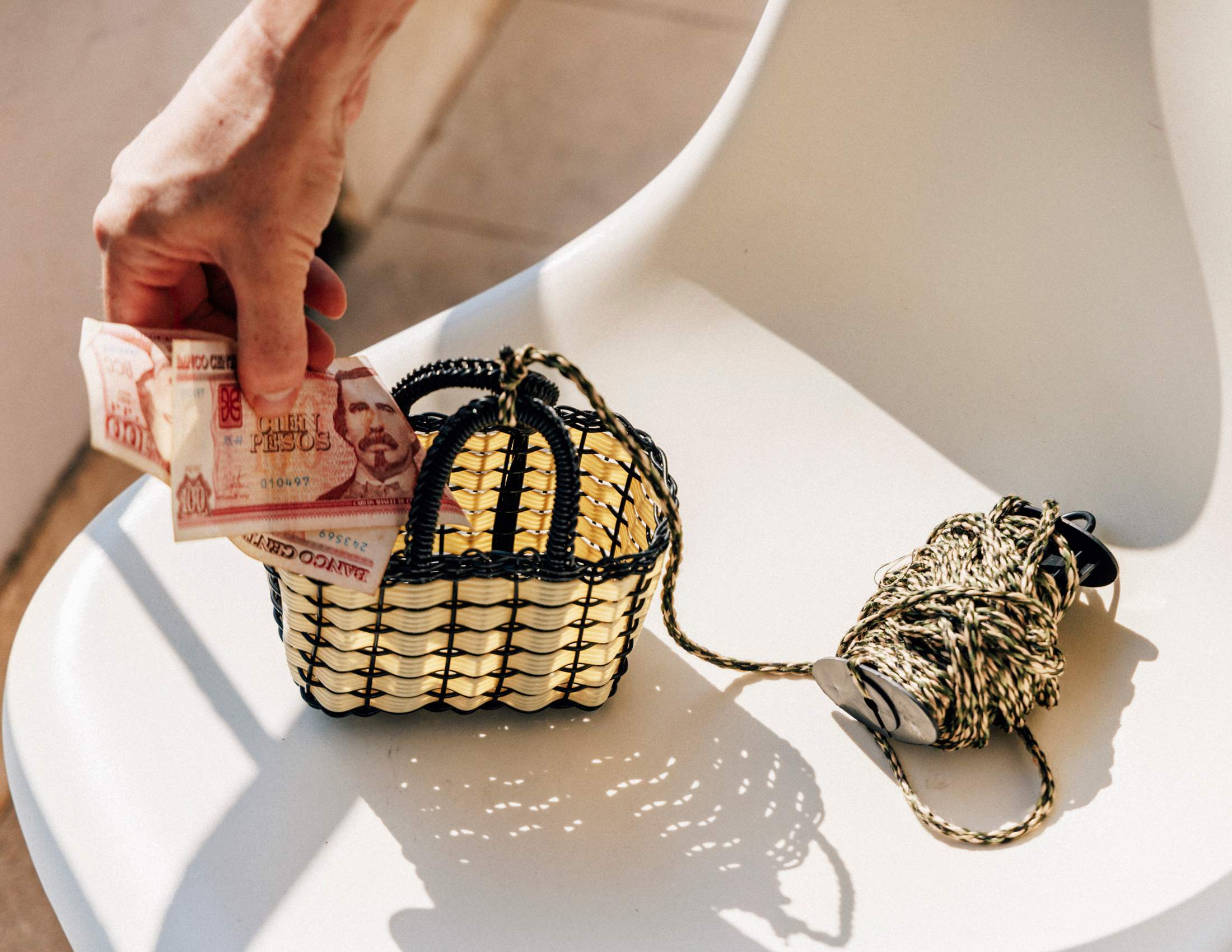
This street-to-balcony mode of commerce is a long-standing fixture of Havana’s informal retail economy. Historically, the pregoneros only provided daily necessities but some newer Cuban delivery businesses are getting in on the action. In a national economy where the full ownership of private businesses by Cuban entrepreneurs was only legalised by its communist government in 2021, this development is changing the urban fabric of the city as well as the daily routines of its residents.
“It’s a new version of an old idea,” says Marta Deus, who developed Mandao, Cuba’s first mobile food-delivery app, in 2019. Its couriers, most of whom carry-out their deliveries by bicycle, are now a familiar sight across the city. Mandao was conceived by Deus as a way of consolidating a method of retail that has existed in Havana for centuries. “The innovation is that now you can get so many things delivered to you quickly at home,” says Deus, noting that the pregonero’s format of delivery has not been encroached upon but simply expanded and complemented. “Havana also has an older population,” she adds. “And most of the residential buildings don’t have elevators, so it’s a much easier way for people to get what they need.”
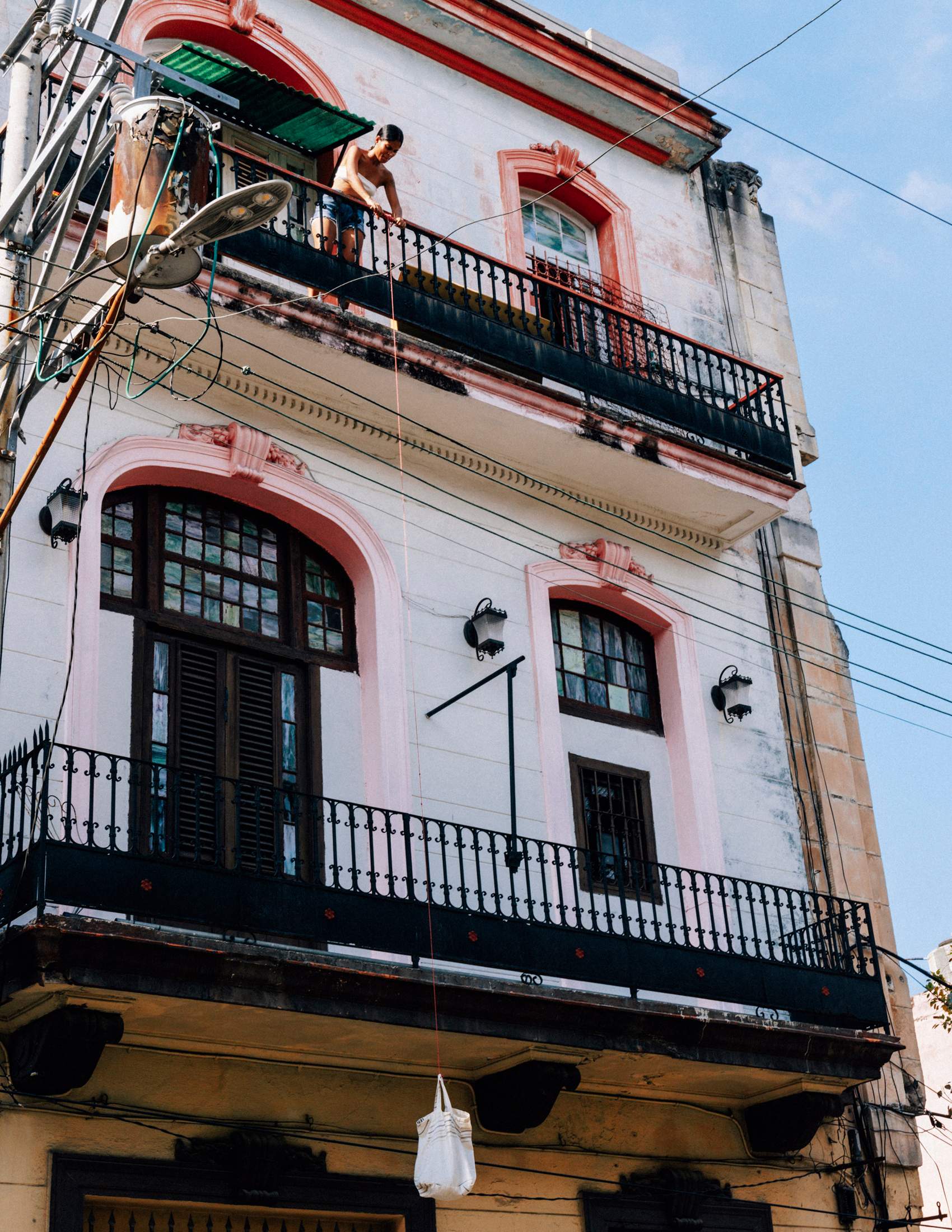

Havana’s balconies also reflect the city’s long history. Told through architectural chapters, the grand verandas mark Spain’s presence in Cuba during the 19th century; the contours of the art deco apartment buildings were built in the 1920s as part of former president Gerardo Machado’s push to modernise; the box balconies that rose after that echoed Soviet architecture. “In colder countries, life unfolds inside the house,” says Deus. But Cuba’s balmy climate looks set to sustain balcony living, and Havana’s time-honoured trading technique, long into the future. —


